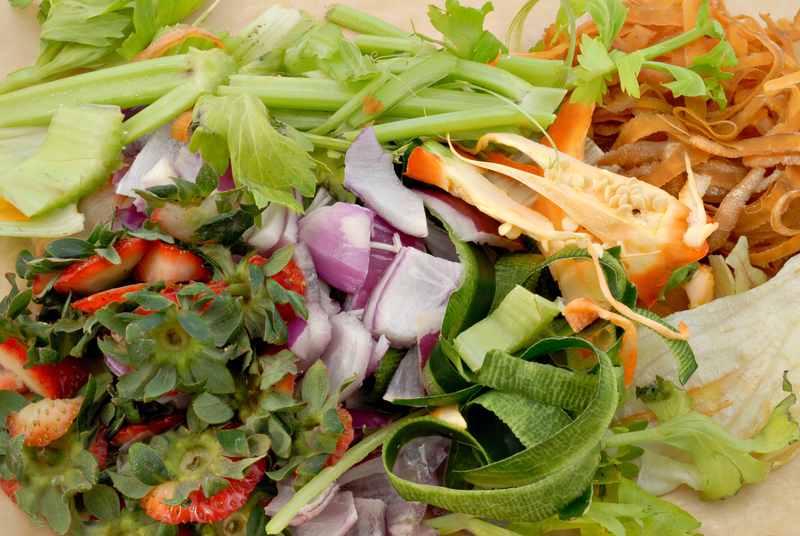Community Programs for Recycling Kitchen Pots: An Informative Guide
In recent years, sustainable living has become increasingly important, and communities worldwide are striving to reduce waste and promote recycling. Recycling kitchen pots--from old saucepans to damaged frying pans--can substantially reduce landfill waste and help conserve natural resources. This comprehensive guide explores various community programs for recycling kitchen pots, spotlighting the impact, benefits, and steps for effective participation in these initiatives.

Why Recycle Kitchen Pots?
Kitchen pots, pans, and cookware are essential household items that eventually reach the end of their useful life. Whether they're warped, scratched, nonstick coatings have degraded, or handles are broken, it's common to simply throw these items away. Unfortunately, that practice contributes to overflowing landfills and environmental problems.
- Metals are valuable: Each pot or pan contains materials--like aluminum, stainless steel, or cast iron--that are highly recyclable.
- Reduces landfill waste: By recycling, we divert bulky items from landfill sites, making way for better waste management.
- Conserves resources: Recycling cookware uses less energy compared to mining and producing new metals.
- Community development: Community-based recycling can foster neighborhood collaboration and environmental awareness.
Because kitchen pots cannot be recycled via most curbside bins, dedicated community recycling efforts are vital for proper disposal and repurposing.
How Community Recycling Programs Work
Local Collection Drives
Many communities organize seasonal collection events, enabling residents to drop off old pots, pans, and kitchenware. These drives are often promoted by local environmental groups, city councils, or waste management companies.
- Typically, a specific day or week is set aside for kitchenware recycling drop-off.
- Volunteers sort the items, separating recyclable metals from plastics or composite items.
- Partner recyclers collect the sorted materials for further processing.
Permanent Drop-Off Locations
In several regions, permanent recycling centers are accessible year-round. These stations accept a range of household metal items, including kitchen cookware.
- Find your nearest recycling center using local government or environmental websites.
- Some centers may only accept certain materials--always confirm guidelines before visiting.
- Separate pots from non-recyclable items, like handles made of plastic, ahead of time for smoother processing.
Specialized Retailer Programs
Increasingly, kitchenware retailers and brands offer take-back or trade-in programs, encouraging customers to return used pots and pans:
- Retailers collect unwanted cookware in-store and divert it for proper recycling.
- Some brands may offer discounts or store credit as incentives for participation.
- This model merges sustainability with customer loyalty, encouraging ongoing responsibility among buyers.
What Types of Kitchen Pots Can Be Recycled?
Most community kitchen pot recycling programs accept various types of cookware:
- Aluminum pots and pans: Lightweight and commonly used, easy to recycle.
- Stainless steel cookware: Durable, rust-resistant, and ideal for metal recycling.
- Cast iron pots: Though heavy, cast iron can be melted and repurposed.
- Copper-bottomed pots: Valued for their high-quality metal content.
Note: Kitchen pots with non-metal parts, such as plastic or silicone handles, may need to be separated, as not all programs can process mixed materials. Nonstick coatings sometimes pose an additional challenge--check with your local program for their specific requirements.
Step-by-Step Guide: How to Prepare Kitchen Pots for Community Recycling
- Clean the Pots: Rinse off any food residue or grease. Most programs require items to be free of debris to prevent contamination of recyclables.
- Remove Non-Metal Components: Detach handles, lids, or knobs made of plastic, wood, or glass, unless the program states mixed materials are acceptable.
- Sort by Material: If possible, group pots and pans by metal type (e.g., aluminum, steel) for efficient processing at the center.
- Review Program Guidelines: Double-check what your local program accepts--some do not accept Teflon-coated or ceramic cookware.
- Drop Off Responsibly: Deliver the materials to the designated community event or collection location during specified hours.
Benefits of Community-Based Recycling Programs
Community recycling programs for kitchen pots offer numerous advantages, both environmentally and socially:
- Environmental stewardship: Reduces mining needs, lowers energy consumption, and curbs greenhouse gas emissions.
- Increased awareness: Promotes environmental education and sustainable habits within neighborhoods.
- Community pride: Fosters a spirit of collective responsibility and achievement.
- Economic value: Recycling facilities create local jobs. Selling scrap metals can yield revenue for community projects.
- Encourages further participation: Success in kitchen pot recycling inspires greater involvement in other sustainability projects.
Innovative Community Programs & Case Studies
Pot to Plot: Turning Old Cookware into Garden Infrastructure
Some progressive communities have launched unique upcycling initiatives. 'Pot to Plot' programs collect old kitchen pots and repurpose them as planters for urban gardens. The program diverts cookware from landfills and enhances community gardens with durable, quirky planters.
- Schools and park groups collaborate to paint and decorate the pots before planting flowers or herbs.
- This creative reuse approach inspires engagement and teaches children about recycling's importance.
Charity Partnerships: Donating Reusable Pots
Not all unwanted kitchen pots are destined for the recycling plant. Many organizations partner with charities to collect gently used cookware:
- Reused pots are sanitized and distributed to low-income families or shelters.
- This process extends the life of functional pots, reduces waste, and supports those in need.
- Local businesses often act as drop-off points or donation coordinators.
Municipal Metal Drives: Citywide Recycling Events
In large cities, municipal governments often host "metal drives," accepting any scrap metal, including kitchen pots and pans:
- Scheduled several times a year, these events draw attention to the importance of metal recycling.
- They accommodate large volumes and provide data on local recycling rates for future planning.
Tools and Resources: How to Find a Community Program Near You
Finding a community recycling program for kitchen pots is easier than ever, thanks to a range of resources:
- Local Government Websites: City and county websites typically list collection events, drop-off sites, and guidelines for recycling cookware and other household metals.
- Earth911: This website (www.earth911.com) maintains a nationwide database of recycling centers by zip code and accepted materials.
- Scrap Metal Dealers: Check local listings for scrap yards; many accept pots and pans and may even pay for large quantities of metal.
- Retailer Trade-In Programs: Major brands and stores often advertise take-back initiatives--watch for these on retailer websites or in-store signage.
- Environmental Nonprofits: Organizations like Keep America Beautiful and local "Green Teams" promote neighborhood recycling drives and environmental projects.
Common Challenges in Recycling Pots and Pans
While community programs are impactful, there are some obstacles:
- Contamination: Pots with stubborn food, grease, or chemical coatings can contaminate recycling batches and disrupt operations.
- Mixed Materials: Cookware made with a combination of metals, plastics, and nonstick coatings may be rejected by some programs.
- Lack of Awareness: Many people simply don't know that kitchen pots can be recycled or where to start.
- Inadequate Infrastructure: Some regions lack convenient drop-off points or local initiatives.
Overcoming these challenges requires targeted education, wider access to facilities, and the support of both public and private sectors.
Eco-Friendly Alternatives: Upcycling and Creative Reuse
Not every pot must be melted down or scrapped--upcycling transforms old pots into practical or decorative items:
- Garden Planters: With just a bit of paint and creativity, any pot becomes a unique garden feature.
- Storage Solutions: Use deep pots for tool storage in garages or sheds.
- Craft Projects: Let kids use worn-out pots for creative projects at home or at school.
By embracing creative reuse, households can further minimize waste and stimulate imagination.
How to Start a Community Kitchen Pot Recycling Program
If no program exists in your area, consider starting one! Here's a quick primer:
- Gather Support: Contact local environmental nonprofits, the city council, or neighborhood associations to gauge interest.
- Identify Partnerships: Reach out to scrap metal dealers, recycling centers, or even kitchenware retailers for collection or processing help.
- Set Logistics: Decide on a date, venue, and what types of pots and pans to accept. Organize volunteers for collection and sorting.
- Promote the Event: Use flyers, social media, local news, and word of mouth to get the word out.
- Report Impact: After the event, tally collected items, thank participants, and share results to build momentum for future recycling efforts.

Frequently Asked Questions (FAQs)
Can nonstick kitchen pots and pans be recycled?
Some communities accept nonstick cookware, provided coatings are not excessive. Always check if your program has special instructions. Some centers require that Teflon or ceramic coatings be mechanically removed before recycling.
What about glass or ceramic cookware?
Glass and ceramic items are usually not recyclable with metal pots and require different processing; find a specialized facility or check for household hazardous waste events in your area.
Do I need to remove all screws and handles from my pots?
While not always mandatory, removing obvious non-metal pieces (e.g., plastic handles or wooden knobs) simplifies the process for recycling staff and increases the likelihood of acceptance.
Conclusion: The Importance of Recycling Kitchen Pots in the Community
Kitchen pot recycling through community programs is a practical, impactful way to foster sustainability. By organizing or participating in local initiatives, individuals contribute to environmental protection, resource conservation, and stronger neighborhood bonds. Next time your kitchenware wears out, remember: Don't toss it--recycle it! With more communities recognizing the value of these programs, together we can pave the way toward a cleaner, greener future.
Join or start a community kitchen pot recycling project today--your efforts make a difference!
